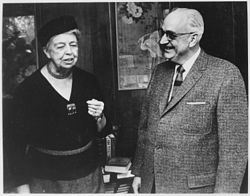Karl A. Menninger Quote
Related Quotes
Certainly we can say that the pace of modern life, increased and supported by our technology in general and our personal electronics in particular, has resulted in a short attention span and an addict...
Arthur Rosenfeld
Tags:
being, complicated, critical thinking, daoism, emotion, feeling, hectic, life, meditation, modern life
Let my silence grow with noise as pregnant mothers grow with life. Let my silence permeate these walls as sunlight permeates a home. Let the silence rise from unwatered graves and craters left by bomb...
Kamand Kojouri
Tags:
abuse, abused, activism, activism poems, activist, amnesty, bellies, bombs, broken hearts, coming together
The downfall of the attempts of governments and leaders to unite mankind is found in this- in the wrong message that we should see everyone as the same. This is the root of the failure of harmony. Bec...
C. JoyBell C.
Tags:
color, culture, difference, differences, equality, government, harmony, human, humanism, humanity
About Karl A. Menninger
Karl Augustus Menninger (July 22, 1893 – July 18, 1990) was an American psychiatrist, author, and activist. He was a member of the Menninger family of psychiatrists who founded the Menninger Foundation and the Menninger Clinic in Topeka, Kansas.
He wrote many books including The Human Mind (1930), Man Against Himself (1938), Love Against Hate (1942), The Vital Balance (1963) and The Crime of Punishment (1968). During his life he advocated for a number of causes including children suffering from abuse or neglect, Native Americans, women's rights, prisoners, the elderly, the environment, wildlife, and against nuclear weapons.
Despite being one of the most famous psychiatrists during his time, he was an outsider to mainstream psychiatry, calling the DSM-II a modern “Witches Hammer Manual”
He wrote many books including The Human Mind (1930), Man Against Himself (1938), Love Against Hate (1942), The Vital Balance (1963) and The Crime of Punishment (1968). During his life he advocated for a number of causes including children suffering from abuse or neglect, Native Americans, women's rights, prisoners, the elderly, the environment, wildlife, and against nuclear weapons.
Despite being one of the most famous psychiatrists during his time, he was an outsider to mainstream psychiatry, calling the DSM-II a modern “Witches Hammer Manual”
